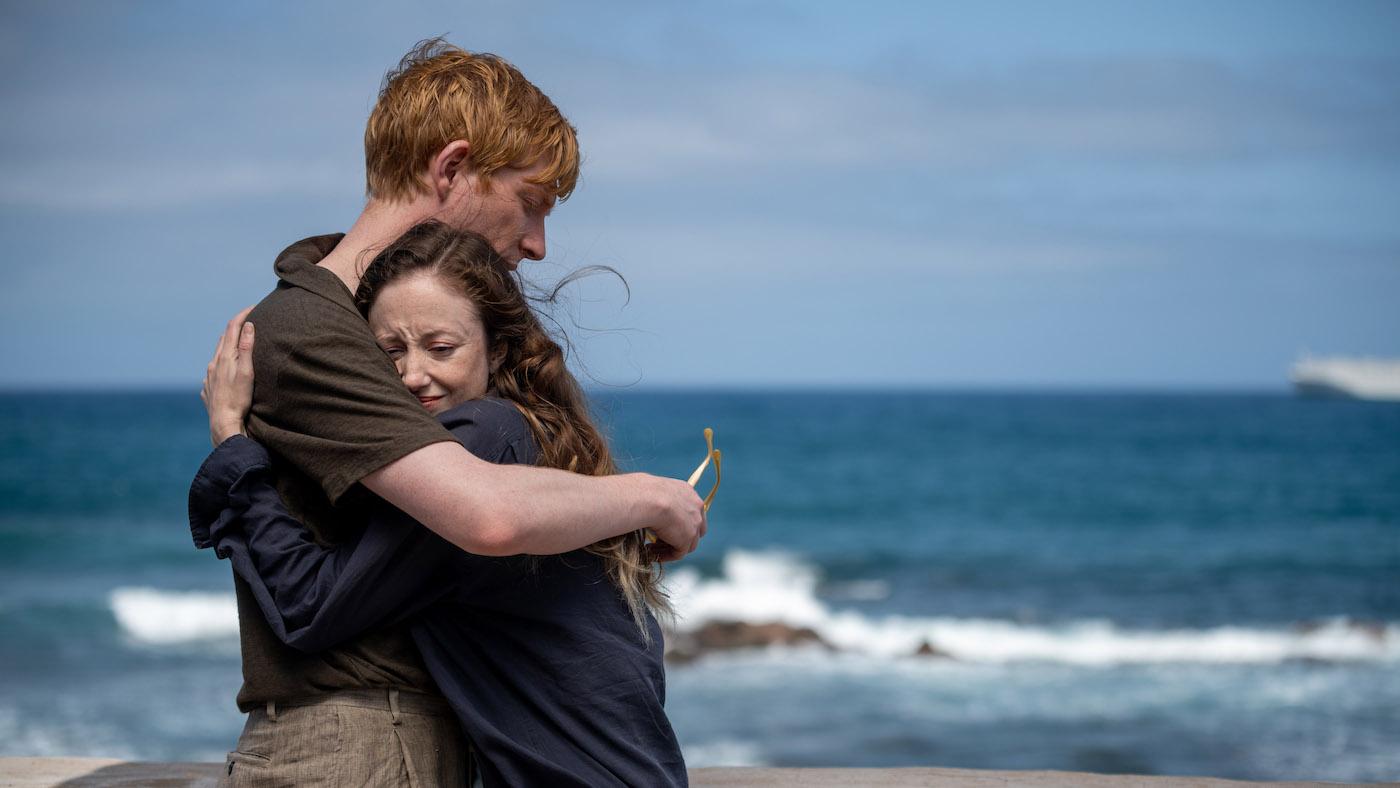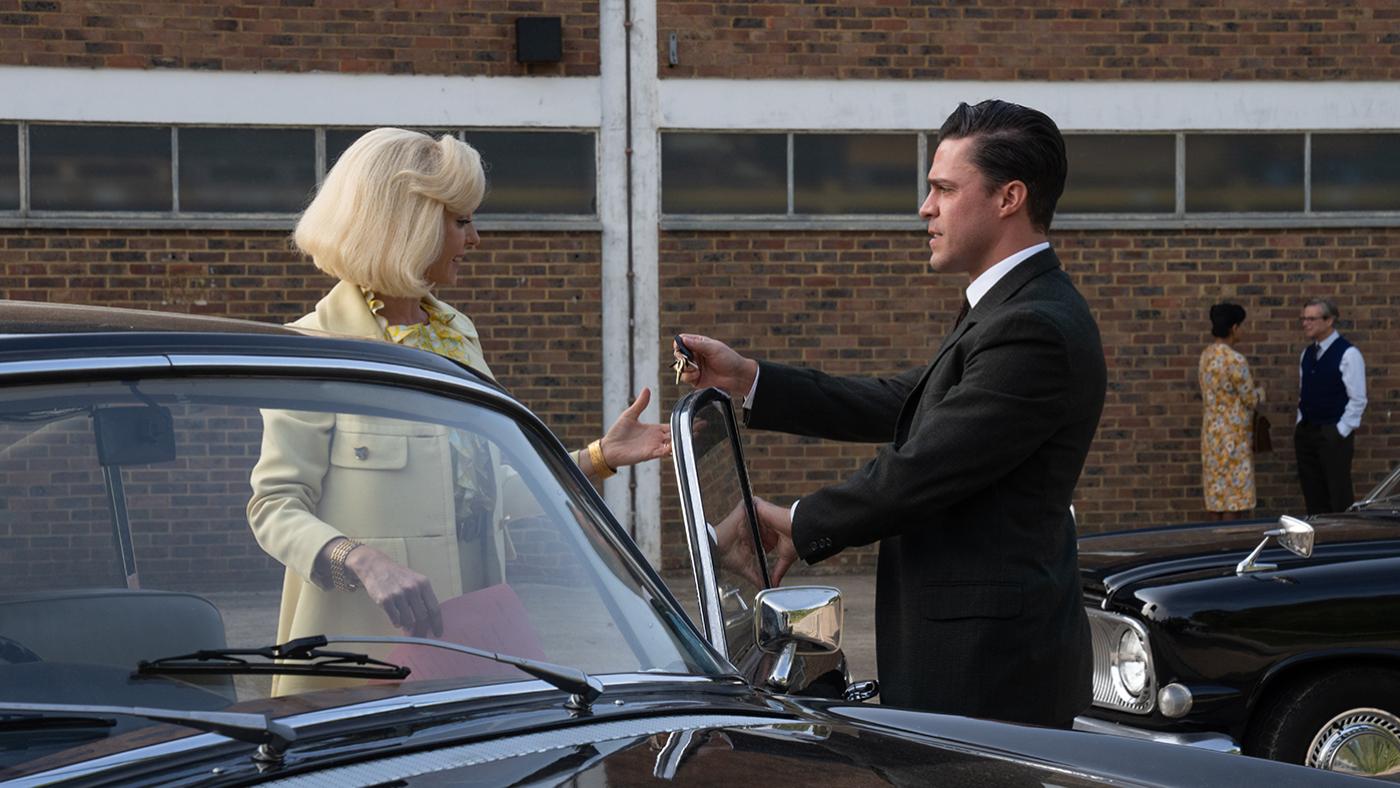'Vienna Blood' Recap: Season 3 Episode 3
Daniel Hautzinger
January 22, 2023

Vienna Blood airs Sundays at 9:00 pm and is available to stream. Recap the previous and following episodes.
Keep up with your favorite dramas and mysteries by signing up for our newsletter, Dramalogue.
For once, Oskar is not investigating a murder. A wealthy and influential ex-minister of finance was assaulted by a masked man who was burglarizing his home. Only one item was taken from the antique-filled house, and it was an inexpensive reproduction. A lacquered cabinet was opened and damaged, however. Von Bülow has assigned Oskar to the case because he needs results, even though Oskar doesn’t typically work burglaries. Oskar makes clear to his boss that he will only put up with so much. He knows that it is von Bülow’s reputation that is on the line in this case, not his.
Oskar’s influence is growing, while Max has been stymied in professional advancement. He was passed over as the new head of neurology for a professor named Neumann, who at least has read Max’s book and is more open to Freudian inquiry than the previous head.
At least Fraulein Lindner, the police archivist, believes in Max. She has asked him to help Georg Steiner, a suffering friend of her late father who now lives in a hospital for veterans. Her father was a well-off merchant in China who was saved by Steiner during the Boxer Rebellion, when a drought sent a militia into Peking from the countryside to wreak havoc, especially in the Christian quarters. Out of obligation, Fraulein Lindner occasionally visits Steiner, who believes he is cursed.
Max gains the reluctant permission of the hospital’s clinical director, Wiesinger, to visit Steiner. But when he and a nurse arrive at Steiner’s room, the door is locked and barred by furniture from the inside. An aide breaks through the door to reveal Steiner wielding a knife, a dead chicken and its entrails spread throughout the room. The hospital staff subdues him and sedates him with morphine. “The panther is on the water and its belly is full,” Steiner cries out as he is handcuffed to the bed.
Max waits hours for the morphine to wear off, then speaks to the restrained Steiner, who explains that a dark figure haunts him every night. Evil has been released into the world, and won’t rest until it finds its target.
Max doesn’t agree with Wiesinger’s treatment of Steiner via dulling drugs, and asks the doctor to allow Max to take on Steiner as a patient—but Wiesinger refuses, and throws in some casual anti-Semitism and skepticism about Max’s book while he’s at it.
Wiesinger is not the only one wary of Max’s methods. When Max suggests that a staircase is a “rudimentary phallus” to the pregnant mother of a young patient terrified of staircases, she storms out with her son in tow.
Insulted by Max’s questioning of his methods, Wiesinger stops drugging Steiner and removes his restraints. The next morning, Steiner is found shirtless and chained to pipes in the basement, scalded to death by steam from the boiler. His military uniform is hung nearby. The death is ruled a suicide.
Max is at his parents’ house, learning of their plan to visit London and trying to speak to Clara in private, when he receives the call that Steiner has died. He is later called to speak to his new department head, Neumann, who explains that Wiesinger is claiming he acted on Max’s advice by not sedating Steiner, leading to his suicide, and has lodged a formal complaint against Max.
Max enlists Oskar to join him at the hospital and investigate Steiner’s death. Oskar is happy to have something less boring than his burglary investigation. His only lead is a similar burglary two weeks ago. Once again, nothing valuable was taken from an antique-filled home, but a lacquered cabinet identical to the one in the minister of finance’s home was damaged, and has been sent to a restorer.
At the hospital, Max and Oskar interview the workers and learn that Steiner had displayed erratic behavior recently. In addition to the chicken incident that Max witnessed, Steiner had broken into a greenhouse on the grounds and hauled a tree from it back to his room. Oskar believes, like the workers, that Steiner was insane and committed suicide, but Max thinks it odd that he did so in such a complicated and painful way when he had a rifle in his room.
Looking to see if the rifle works, Oskar finds a scrap of paper hidden inside. It’s a schedule or ticket for an Austrian steamer called the Panther that trawled between China and Europe. A postmortem of Steiner reveals lacerations on his feet, likely a month or so old. He may have been tortured.
Max’s parents visit him to caution him. A friend saw Clara entering Max’s apartment, and then they observed him at their home trying to speak to her privately. You’ve already broken off an engagement with her once, they tell him; don’t ruin Clara’s life again, as she embarks upon a promising career as a journalist. Max tells them he simply has a working relationship with Clara.
Wiesinger is upset when Max and Oskar return to the hospital for interviews with the residents. Now that there is evidence that Steiner was tortured or abused, it has become a police investigation. They learn nothing from the patients, including a wheelchair-bound acquaintance of Steiner’s named Hammer who apparently never speaks.
But Oskar has noticed an oddity with the building. Steiner’s room is smaller than it should be, at least from appearances on the exterior of the building, where a window next to Steiner’s is blacked out. To investigate without raising suspicion, Oskar tells Wiesinger he and Max will stay the night—it is too rainy and dark for a trip back into the city, he lies.
As the two men lie in bunk beds waiting for the hospital to go to sleep, Max asks Oskar what’s troubling him—he knows him well enough. Oskar admits that he has been having dinners with Therese, his admirer, and her daughter Hannah and enjoying them, but he feels as if he is betraying his own late daughter and wife, from whom he is separated. Therese has even offered to let Oskar stay the night, but he has demurred. Max reassures Oskar that he is a good man, and can enter a new romantic relationship with a clear conscience.
Then they set off to investigate Steiner’s room. They witness a female nurse and male aide embracing before going into his room together.
Inside Steiner’s room, Oskar discovers a removable panel in the wall that leads to a crawl space. He and Max clamber through it to find another room. Inside is a mask: the shadowy figure or vengeful god that Steiner believes cursed him, and was coming for him.







